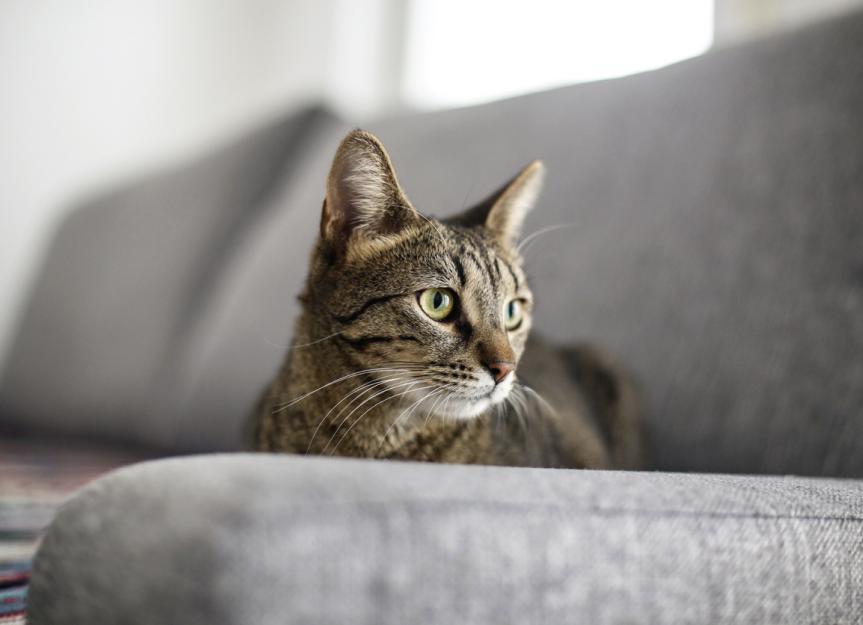Cat Asthma
What Is Cat Asthma?
Cat asthma is a recurring respiratory (breathing) condition that is characterized by inflammation (swelling) in the lungs and narrowing of the airways. Asthma is caused by contact with an allergen such as dust or pollen your cat inhaled while breathing. Asthma can be made worse by stress. Cats affected by asthma may show signs of coughing, difficulty breathing, and wheezing.
Although these symptoms may come and go, depending on your cat’s contact their allergens, asthma will not clear up without long-term treatment.
Symptoms of Cat Asthma
The most common signs include:
Coughing, which can look like gagging or vomiting
Difficulty breathing
Breathing that looks like it is coming from the belly instead of the chest
Noisy “wheezy” breathing
Causes of Cat Asthma
Feline asthma is caused by an allergic reaction triggered when the cat inhales a allergen such as dust, cigarette smoke, pollens, dust mites, mildew, cat litter, and household chemicals. Even being exposed to candles, hair spray, and room fresheners can trigger a flare-up in sensitive cats.
How Veterinarians Diagnose Asthma in Cats
If you notice signs of asthma in your cat like difficulty breathing, you should visit the emergency vet. If your cat is coughing but still breathing normally, you can book a regular appointment. Once at the vet, cats with signs of asthma will usually require a basic blood panel, a heartworm profile, and chest radiographs.
Some cats may also need more testing, which may include fecal tests for lung parasites as well as airway washes to look for the cause of the lung inflammation. In some cases, the diagnosis is very easy and straightforward, but other cats will require more extensive testing. Unfortunately, vets often are unable to figure out what started the process in the first place.
Treatment for Asthma in Cats
Because the primary problem involved in asthma is the underlying inflammation, treatment is aimed at reducing this inflammation. It is generally not possible to eliminate the allergens your cat is inhaling. Even if your cat is not showing symptoms, they will need to continue the anti-inflammatory medication.
Long term, the safest way to give this medication is using an inhaler, much as would be done for humans with asthma. Some cats are treated with oral or injectable anti-inflammatories instead of inhaled medication. The risks of side effects are higher with the oral treatments, however, so inhalers are generally preferred.
Recovery and Management of Asthma in Cats
With proper care, the vast majority of cats with asthma will respond to treatment and experience only occasional flare-ups of symptoms. However, even if your cat’s symptoms seem to disappear, it is very important to continue with treatment because the underlying inflammation is still simmering and can cause long-term disease. When asthmatic cats are treated, they are likely to do very well.
Asthma in Cats FAQs
How can I treat my cat’s asthma at home?
After diagnosis, asthma is usually treated at home using inhaled anti-inflammatory medications daily, with a rescue inhaler to use if there’s a significant flare-up. Some cats will be treated (at least short-term) with oral medications in addition to, or instead of, the inhalers.
Can asthma kill a cat?
Yes. Just as untreated asthma in humans can be fatal, the same is true in cats.
What does a cat with asthma sound like?
Some cats with asthma will cough and look like they are trying to bring up a hairball. Other cats will have an audible wheeze when breathing.
t成本多少钱reat a cat with asthma?
The cost to treat a cat with asthma depends on which medication your vet prescribes, where you choose to have that prescription filled, and the severity of the asthma. In all cases, however, proper treatment will likely be much less expensive than a single visit to an emergency facility for a cat that is struggling to breathe.
Does my cat have asthma or a hairball?
哮喘是一种肺部的疾病,而毛团come from the stomach. When cats with hairballs vomit their back is arched, and they vomit up fluid and hair, often while walking backward.
When cats with asthma cough: their neck and back are straight and parallel to the floor, and they don’t usually move backward while coughing. If you are not sure which symptom your cat has, it is best to video the event to show your veterinarian what is happening.
What triggers asthma in cats?
Asthma in cats is triggered when a cat inhales an allergen that causes an allergic reaction. Allergens include dust, cigarette smoke, pollens, dust mites, mildew, cat litter, and household chemicals.
Featured Image: iStock.com/GoodLifeStudio

